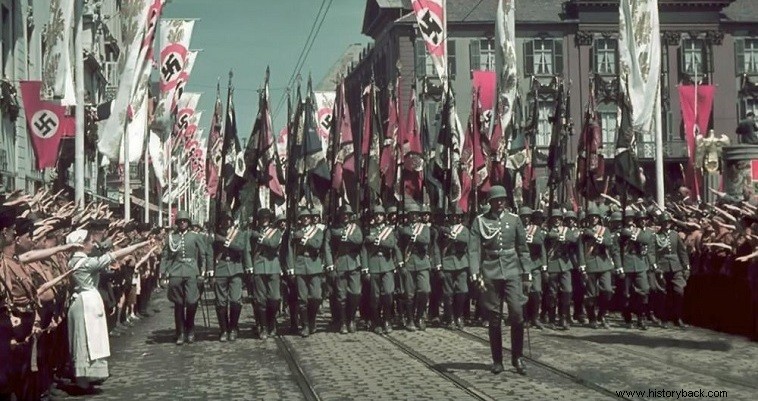
At least 150,000 men of Jewish origin, under Nazi law, served in the German armed forces during the early stages of World War II, according to a study by American historian Brian Mark Rigg, published in his book "Hitler's Jewish Soldiers."
Rigg, a professor at the University of Virginia, interviewed about 400 soldiers of Jewish origin which he includes in his book. Based on the racist Nuremberg Laws, implemented by Hitler in 1935, anyone with even one Jewish ancestor from 1770 onwards was considered a Jew and was prohibited from serving in the Wehrmacht.
Nevertheless, 60,000 men with a Jewish parent and 90,000 men with a Jewish grandparent served in the Wehrmacht, despite the persecution of German Jews, believing that by serving they would save themselves and their families.
Unfortunately for them it did not happen like that and most of those who returned to Germany, after the Polish campaign, were informed that their families were being persecuted as before. Many then complained, officially, to the military hierarchy, with the result that the matter reached Hitler, who ordered their immediate demobilization. However, the demobilization order did not reach everyone in time and several continued to fight, for a time, until the end of 1940, or so.
Some continued to hide their origins and remained in the Wehrmacht out of fear. Others had simply renounced their Jewish origins years ago, having completely assimilated into German society, although Hitler denied that such a thing could happen.
There were also cases, such as that of Luftwaffe Marshal Erhard Milch, who was also the real reorganizer of the German air force. Another case is that of former German Chancellor Helmut Schmidt, who served in the German army and survived the war.
Germans of mixed descent were called Mischlinge (mixed race) and suffered these persecutions with other Jews in the vast majority of cases, as did demobilized Jewish soldiers, from 1940 onwards. Most ended up in concentration extermination camps.
